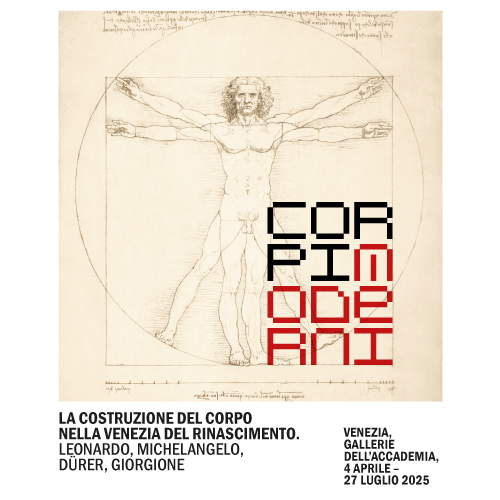Madia bill is law: huge risks for art, culture and landscape. But we hope for unconstitutionality.
Despite appeals, articles and choruses of authoritative voices against it, yesterday the Madia bill was approved in the Senate and thus became law. Of course, it is a proxy law and, to see it in full operation, it will be necessary to wait for the government’s implementing decrees, although hopes for a reversal of the law’s text are, in fact, nil: it is difficult to expect the government to issue decrees that go against a government-initiated law. And it is useless to hide the fact that the news disappointed all the nearly twenty-five thousand signatories, including us, of the petition "This is no way to kill Article 9 of the Constitution," signed by, among others, personalities such as Dario Fo, Massimo Bray, Andrea and Vittorio Emiliani, Carlo Ginzburg, Salvatore Settis, Sergio Staino, Tomaso Montanari, Francesco Caglioti, Maria Pia Guermandi, Stefano Rodotà .... and by a great many citizens who have profound contempt for the culturaphobia, to use the apt term proposed by Luca Rota, demonstrated by the actions of this government, light years away from its own words.
 |
| Marianna Madia and Matteo Renzi. Image by Business Online distributed under a Creative Commons license. |
Why does the petition speak of “violation of Article 9 of the Constitution” and the “most serious attack on the system of landscape and cultural heritage protection ever perpetrated by a Government of the Italian Republic”? We have talked about the Madia decree in recent days, but it is good to recap what are the measures, now approved, that closely affect the protection of art and landscape:
- Introduction of Silence of Assent in relations between public administrations, to which the entire Article 3 of the text approved in the Senate is dedicated. Let’s read some salient passages: “In cases where the acquisition of assents, concerts or nihil obstat, however denominated, of public administrations and managers of public goods or services is envisaged, for the adoption of regulatory and administrative measures falling within the competence of other public administrations, the competent administrations or managers shall communicate their assent, concert or nihil obstat within thirty days from the receipt of the outline of the measure, accompanied by the relevant documentation, by the proceeding administration. The time limit shall be interrupted if the administration or operator that is to render its assent, agreement or nulla osta represents investigative needs or requests for amendments, justified and formulated in a timely manner within the same time limit. In such a case, the assent, concert or nulla osta shall be rendered within the next 30 days from the receipt of the preliminary elements or outline of the measure; no further interruption of time limits shall be allowed.” After this period of time has elapsed without the administrations in charge of responding to a request making themselves heard, the assent “shall be deemed acquired.” And if the above were too vague, paragraph 3 says that “the provisions of paragraphs 1 and 2 shall also apply to cases in which the acquisition of consents, concerts or nulla osta, however denominated, of administrations in charge of environmental, landscape-territorial, cultural heritage and citizens’ health protection is required for the adoption of regulatory and administrative measures falling under the jurisdiction of public administrations.” What is the real risk of this measure? The green light to invasive interventions on the landscape (read cementing): if a developer intending to carry out impactful works does not receive an opinion from the Superintendence within the time limits established by law, he will be able to start building.
- Confluence of superintendencies in prefectures. In Article 8, paragraph 1e of the approved text, we read that the “transformation of the Prefecture-Territorial Office of the Government into a State Territorial Office” and the consequent “confluence into the State Territorial Office of all the peripheral offices of the civil administrations of the State” will be provided for. The real risk? That of seeing superintendencies terribly depowered, if not actually dismantled, with officials and employees reporting to the prefect. Which will probably result in a great deal of confusion over competencies as the body in charge of art, environment and landscape protection will at best come under the employ of another body. And on why it is enormously wrong to entrust prefects with landscape protection, Tomaso Montanari wrote in Repubblica.
- Let us also not forget the possible cancellation of the State Forestry Corps: paragraph 1a of Article 8 provides for the “reorganization of the State Forestry Corps and its possible absorption into another Police Force.” This was enough to unleash the wrath of foresters, who took to the streets in Rome to protest in front of the Pantheon, against Renzi and the PD who are “destroying the forestry corps” by allowing the environment and nature to be “sold out for an election spot.”
In short: we can say that civil service reform undermines the protection of our heritage, which is what is most precious to us. And this blatant attack on protection comes from a government that, a case probably unique in the world, leads the fight against inefficiency by deregulation, rather than by sensible measures aimed at reducing waste, fostering transparency and encouraging the speeding up of processes. A government wanted by no one, which is not even an expression of an election result, since it is composed of elements who, at the last elections, were militating on opposing fronts. A government that is therefore not an expression of any popular will and that is presided over by a premier who, to announce the approval of the reform, launches a tweet imbued with the infantilism that has often connoted his communicative style. And a government that, we repeat in case it had escaped notice, with the reform on public administration has in fact given the green light to the cementing and dismantling of the superintendencies: could it be that, as many have noted, rather than inefficiency the government wants rather to hit those who have so far strenuously opposed the aims of the ultras of land speculation? In any case, all that remains is to trust in one last element that could turn the tables: a possible declaration of unconstitutionality.
Warning: the translation into English of the original Italian article was created using automatic tools. We undertake to review all articles, but we do not guarantee the total absence of inaccuracies in the translation due to the program. You can find the original by clicking on the ITA button. If you find any mistake,please contact us.





























